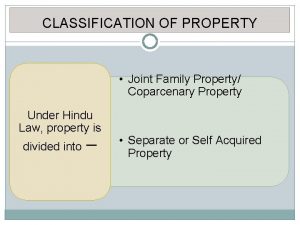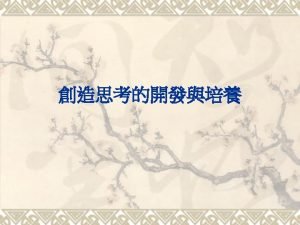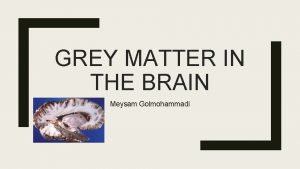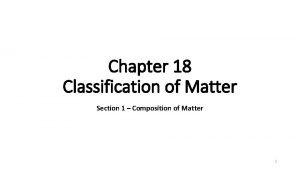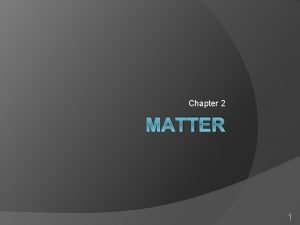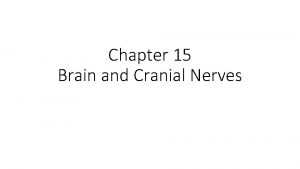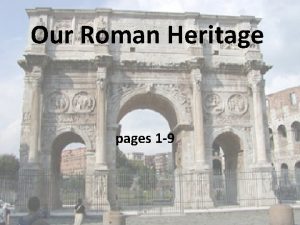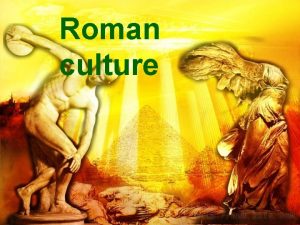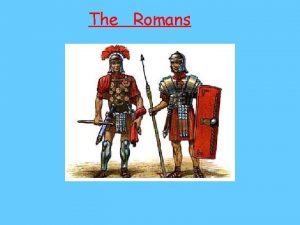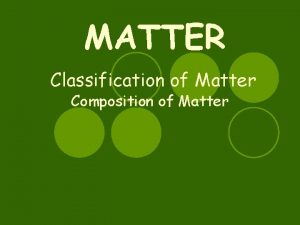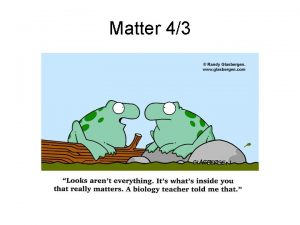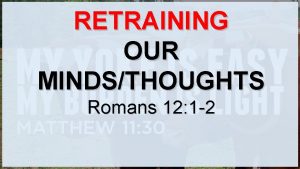OUR ROMAN HERITAGE Why the Romans Matter ROMAN
















- Slides: 16

OUR ROMAN HERITAGE Why the Romans Matter


ROMAN GOVERNMENT Conservative in nature. A system of checks and balances. The founding fathers looked to it when they created the American Constitution. Defined by social conflict. SPQR—The Senate and People of Rome Three branches of government—consulships, Senate, assemblies.

The Roman Republic – The System of Checks and Balances The system was based on balance of interests Monarchical Aristocratic Democratic 2 Consuls + other magistrates Senate Assembly of Tribes Tribune Directed government and army Controlled state budget Acted as judges Could pass laws Could issue edicts Acted as chief priest Approved/rejected laws Decided on War Tribune could veto actions of magistrate Acted as final court Basis of power: possess imperium, the right to rule need for leadership Basis of power: members were richest men in Rome. Basis of power: provided most of the soldiers Limits on power: one year term each could veto Limits on power: could not control army needed majority as soldiers. Limits on power: Could not suggest laws often paid as clients by the elite

LITERATURE Extension of Hellenic literature. Under Augustus, Rome saw its golden age of literature. Virgil, Ovid, Horace, Livy, Tacitus. Patriotic literature, harnessed for imperial propaganda. History hearkened back to a glory age of the republic. Drama continued, modeled after the Greek classics.









ROMAN LAW One of the most important legacies of Rome to it’s successors, such as Western Civilization. Like today, Roman law held jurisdiction over all aspects of society. Based upon not only the law, but just like today, on commentaries of the law and past rulings. At its core, its rested on a belief in “natural law, ” which included cultural assumptions and traditional practices that English Common Law represents. Even the emperor had to obey the law.


 World heritage is our heritage slogan
World heritage is our heritage slogan Sapratibandha
Sapratibandha Sapratibandha
Sapratibandha Hey hey bye bye
Hey hey bye bye 10 ways to protect our national heritage
10 ways to protect our national heritage Don't ask why why why
Don't ask why why why Classification of matter section 1 composition of matter
Classification of matter section 1 composition of matter Gray and white matter
Gray and white matter Section 1 composition of matter
Section 1 composition of matter Chapter 2 section 1 classifying matter answers
Chapter 2 section 1 classifying matter answers Median and lateral apertures
Median and lateral apertures Composition of matter section 1
Composition of matter section 1 Gray matter and white matter
Gray matter and white matter What is gray matter in the brain
What is gray matter in the brain Energy naturally flows from warmer matter to cooler matter.
Energy naturally flows from warmer matter to cooler matter. Why did the romans invaded britain
Why did the romans invaded britain Why did romans invade britain
Why did romans invade britain

